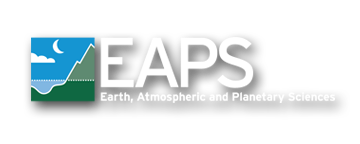Planetary Lunch Seminar – Graham Edwards (Darmouth)
The early history of the LL chondrite parent planetesimal
Abstract: Chondritic meteorites derive from asteroidal parent bodies and record the early stages of planetary assembly. Chondrites are characterized by chondrules – millimeter-sized, igneous spherules that formed from high-temperature processes prior to parent body accretion. However, the physical properties of these chondrite parent bodies and the temporal relationship between chondrule formation and chondrite parent body accretion are debated. We use Pb-phosphate thermochronology with planetesimal-scale thermal models to reconstruct the heating and cooling history of the LL ordinary chondrite parent body. These reconstructions require a ≥150-km initial planetesimal radius, supporting accretionary models that predict rapid accretion of large primary planetesimals (radius >100 km). Additionally, our models predict that the planetesimal accreted on timescales indistinguishable from the formation ages of constituent LL chondrules. This concordance suggests that accretion of the LL parent asteroid occurred very shortly after a major chondrule-forming episode, supporting rapid chondrule formation mechanisms that may have accelerated or initiated rapid accretion.
About this Series: The MIT Planetary Lunch Seminar [PLS] is a weekly seminar series organized within the EAPS department. Colloquia topics span the range of research interests of the department’s planetary sciences research program. The seminars take place on Tuesdays from 12:30–1:30 pm, unless otherwise noted (term-time only). Speakers include members of the MIT community and visitors. Talks are intended to appeal to graduate students, postdocs, research scientists, and faculty with a background in planetary science. Contact: planetary-org@mit.edu.



